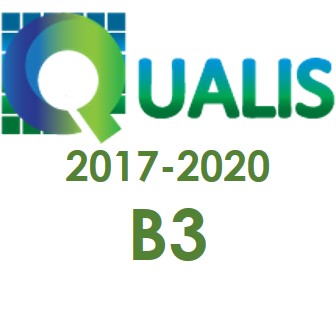ELEIÇÃO PRESIDENCIAL DE 2018: O FUNCIONAMENTO DO LUGAR DISCURSIVO DO PORTA-VOZ NA CAMPANHA DE TRÊS CANDIDATOS
DOI:
https://doi.org/10.22481/folio.v12i2.7919Palavras-chave:
Politica, Porta-voz, Posição-sujeito, ReligiãoResumo
Neste artigo, objetivamos analisar como se constituem as diferentes posições-sujeito ocupadas por três candidatos à presidência do Brasil nas eleições de 2018, que se filiam, em alguma medida, à esfera religiosa, indicando quais memórias tais posições retomam. Como hipótese, defendemos que funciona, nesse caso, o lugar discursivo do porta-voz e, por isso, buscamos identificar, a partir das posições por meio das quais os referidos sujeitos políticos se subjetivam como candidatos à presidência, como esse lugar se configura em suas respectivas campanhas. Para tanto, selecionamos para análise trechos dos planos de governo e publicações desses presidenciáveis feitas nas redes sociais Twitter e Facebook durante o período de campanha eleitoral. Após a seleção e a catalogação dos dados, realizamos a análise discursiva das materialidades, com base nos pressupostos teóricos da Escola Francesa de Análise de Discurso, principalmente, nas noções de posição-sujeito e de porta-voz. Os resultados indicam que, no acontecimento discursivo das eleições presidenciais de 2018, a figura enunciativa do porta-voz, identificada na campanha eleitoral dos três candidatos, apesar de falar em nome de uma coletividade, não representa a vontade de um povo brasileiro uno e indiviso, pois a forma de tais candidatos se identificarem com o lugar discursivo do porta-voz aponta para a deriva de sentidos, indicando que essa suposta unidade do “povo brasileiro” é apenas um efeito relacionado à ilusão subjetiva.
Downloads
Referências
INDURSKY, Freda. Lula Lá: estrutura e acontecimento. In: Organon - Revista do Instituto de Letras da UFRGS, Porto Alegre, v. 17, n. 35, p. 102-121, 2003.
LESSA, Alexandre Ribeiro. Memória e discurso político: o discurso religioso e as eleições presidências brasileiras de 2010. Dissertação.114f. (Mestrado em Memória: Linguagem e Sociedade). Universidade Estadual do Sudoeste da Bahia. Vitória da Conquista, 2014.
LOWY, Michael. Conservadorismo e extrema-direita na Europa e no Brasil. Tradução: Deni Alfaro Rubbo e Marcelo Netto Rodrigues. In: Serviço Social & Sociedade, São Paulo, n. 124, p. 652-664, out./dez. 2015.
ORLANDI, Eni de Lourdes Puccinelli. Análise de Discurso: princípios & procedimentos. 12ª ed. Campinas: Pontes, 2015 [1990].
___. As formas do silêncio: no movimento dos sentidos. 6ª ed. Campinas, SP: Editora da Unicamp, 2007[1992].
___. lnterpretação: autoria, leitura e efeitos do trabalho simbólico. 5ª ed. Campinas, SP: Pontes Editores, 2007 [1996].
PÊCHEUX, Michel. Semântica e discurso: uma crítica à afirmação do óbvio. 5ª ed. Campinas: Ed. da Unicamp, 2014 [1975].
___. Delimitações, inversões, deslocamentos. Tradução: José Horta Nunes. Cadernos de Estudos Linguísticos, Campinas, IEL/UNICAMP, n.19, p.7-24, jul./dez. 1990 [1982].
___. O discurso: estrutura ou acontecimento. Tradução: Eni Puccinelli Orlandi. 4ª ed. Campinas, SP: Pontes Editores, 2008 [1983a].
___. Só há causa daquilo que falha ou o inverno político francês: início de uma retificação (1978). In: PÊCHEUX, M. Semântica e Discurso: uma crítica à afirmação do óbvio. 5ª ed. Campinas: Ed. da Unicamp, 2014 [1975].
___. A análise de discurso: três épocas (1983b). In: GADET, Françoise; HAK, Tony (Orgs.) Por uma análise automática do discurso: uma introdução à obra de Michel Pêcheux. Campinas, Ed. da Unicamp, 2014 [1975].
ZOPPI-FONTANA, Monica Graciela. Cidadãos Modernos: discurso e representação política. Campinas, SP. Editora da Unicamp, 1997.
Downloads
Publicado
Como Citar
Edição
Seção
Licença
Copyright (c) 2021 fólio - Revista de Letras

Este trabalho está licenciado sob uma licença Creative Commons Attribution-NonCommercial 4.0 International License.












